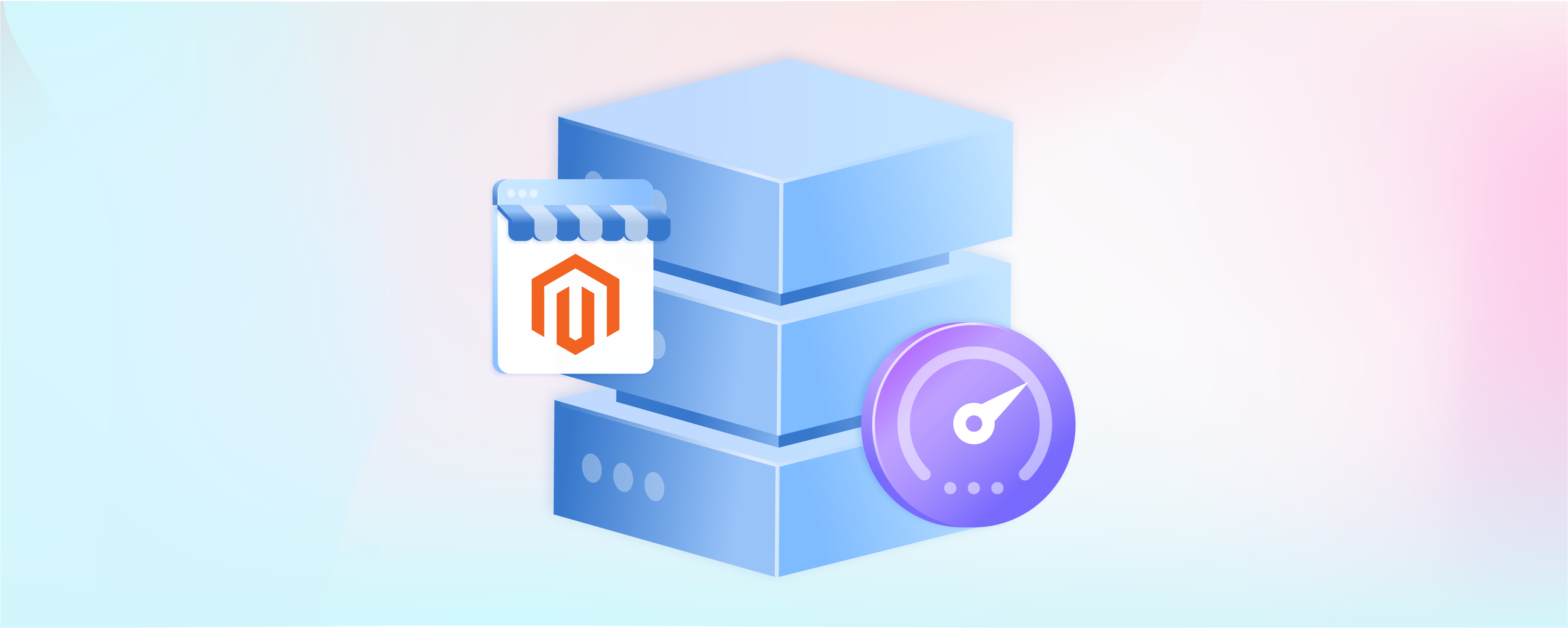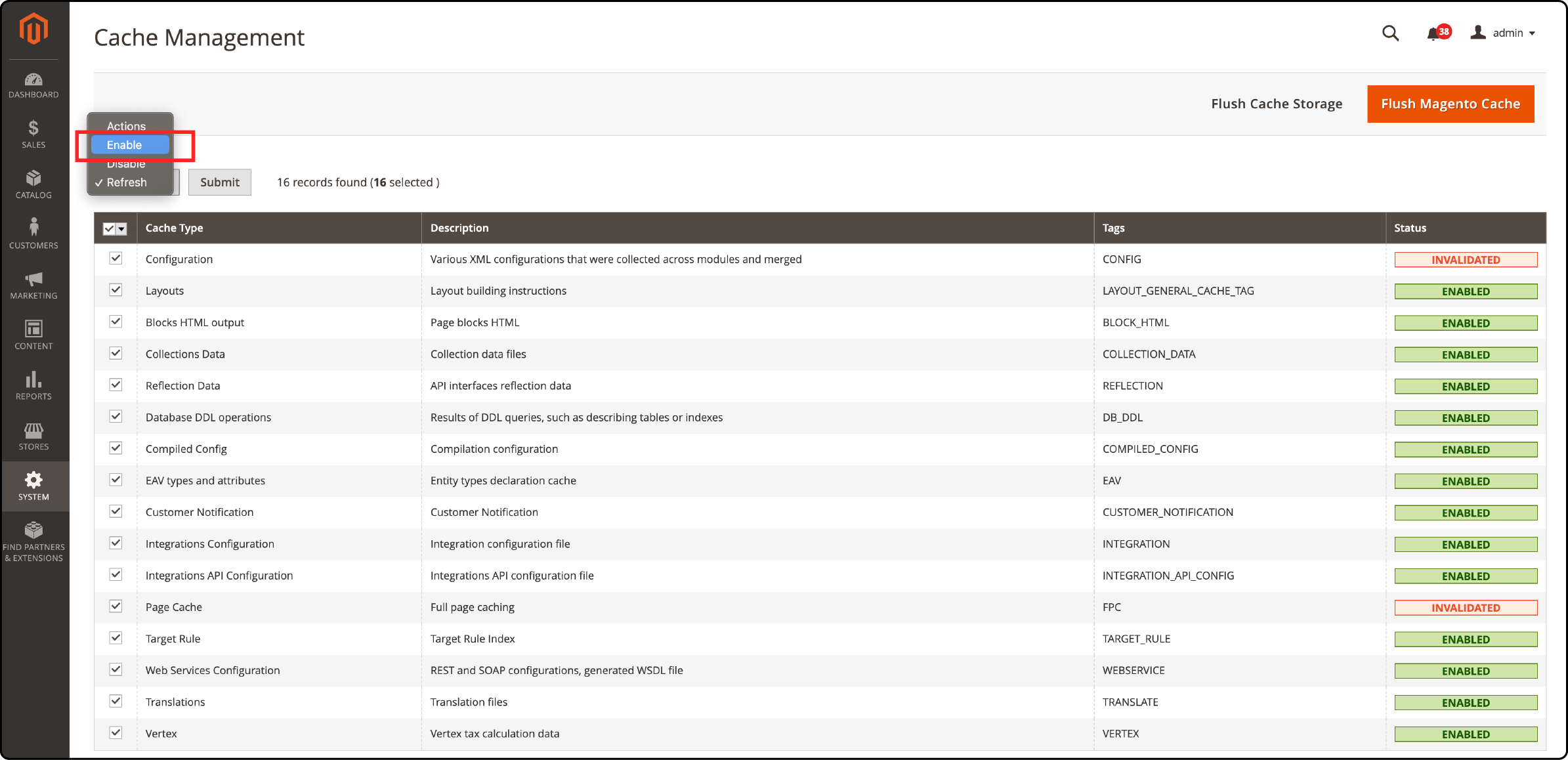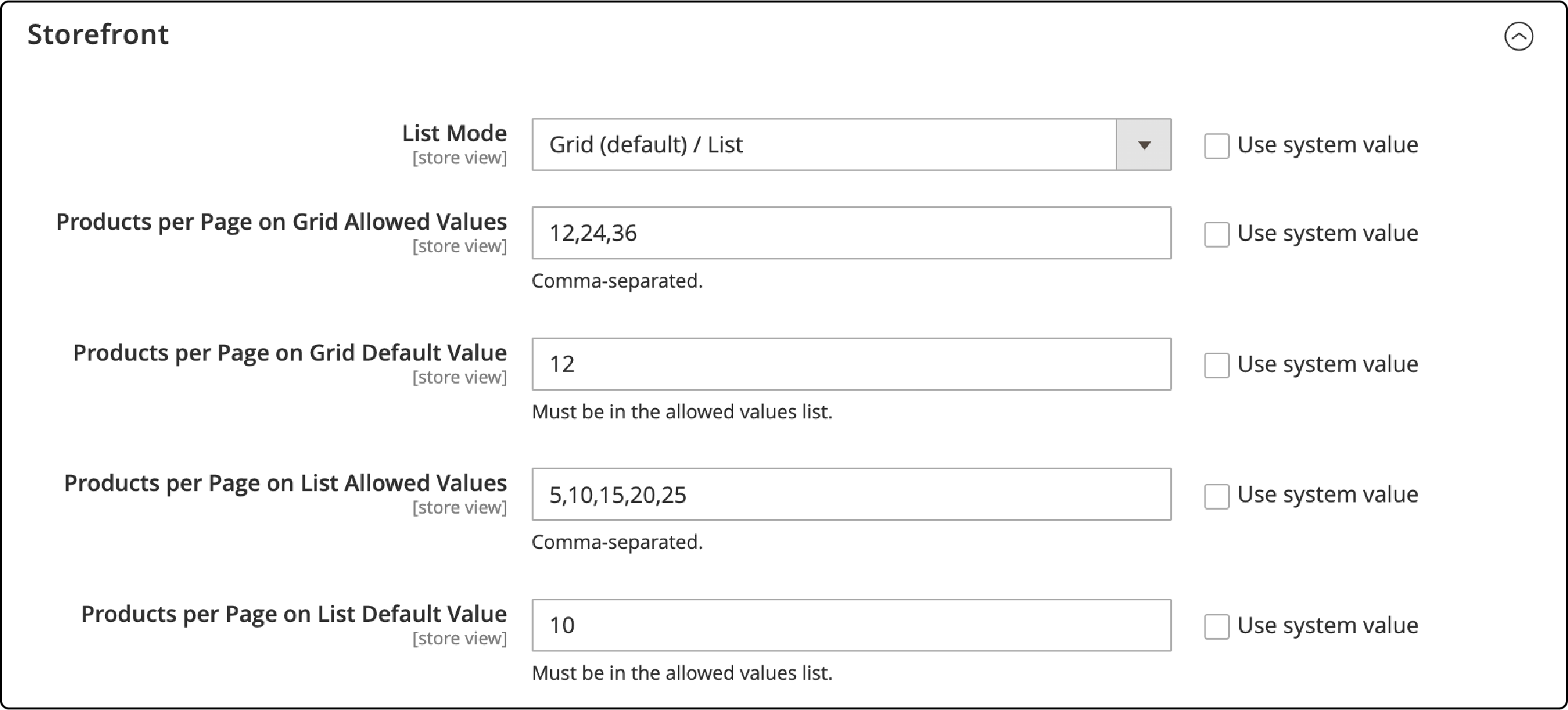
Magento Website Hosting Optimizations for Higher Conversion
Magento website hosting offers flexibility and user-friendliness, but slow loading times can pose challenges. Optimizing Magento is key to enhancing your online store's performance and boosting conversions. This guide provides essential tips to optimize your Magento website. It covers application, configuration, and server-level improvements, ensuring peak performance and increased conversions.
Key Takeaways
-
Discover optimal Magento server configurations for peak performance, including resources, RAM, and SSD storage, ensuring seamless operations for your online store.
-
Explore strategic configuration-level adjustments to enhance website hosting efficiency and reduce bounce rates.
-
Explore application-level optimization techniques to enhance rendering speed and overall website performance.
-
Discover server-level best practices for enhanced security and trust for Magento website hosting.
-
Gain insights into selecting dependable Magento website hosting providers.
What is Magento Website Hosting?

Magento website hosting is the foundation of your online store's presence on the internet. It includes various server and hosting solutions to meet the specific Magento hosting requirements. When choosing Magento hosting, it's essential to consider factors like:
-
Performance: Server configurations, including server resources, RAM, and SSD storage, help ensure your Magento store's optimal performance. It also helps to meet the demands of your visitors.
-
Security: Magento hosting providers prioritize security measures, such as SSL certificates, firewalls, and DDoS protection, to safeguard your online store and customer data.
-
Scalability: As your online business grows, Magento scalability ensures that your hosting solution can handle increased traffic, orders, and data without compromising speed or uptime.
-
Reliability: Hosting reliability depends on factors like hardware, data center infrastructure, and server configurations, ensuring your Magento store operates seamlessly without downtime.
Optimizing Magento Website Hosting at the Server Level
1. Employ a Dedicated Server

A dedicated server ensures that Magento has the full capacity of resources, avoiding potential slowdowns from resource sharing. Opt for Cloud Dedicated Servers for scalability and a global presence. Cloud Dedicated Servers offer scalability, allowing your Magento site to handle varying traffic levels seamlessly. Global presence is also vital for serving customers across geographical locations.
Note: Ensure proper configuration to meet Magento server requirements.
2. Utilize High-Performance SSDs

High-performance SSDs offer significant advantages compared to traditional spinning disk hard drives. They excel in reducing disk read and write times, resulting in substantial performance gains. By adopting SSDs for your Magento hosting, you'll experience notable improvements in data access speed. SSDs are also known for their reliability, reducing the risk of data loss and ensuring the consistent availability of your Magento site.
3. Allocate Adequate Resources
In Magento, an insufficient allocation of resources can create a bottleneck that adversely affects the speed and overall performance of your online store. Ensure your server has at least 2GB of RAM and a dual-core CPU. It results in improved performance, including faster page loading times and handling increased traffic without compromising speed.
4. Use Separate Web and Database Servers
A single server with web and database functions can significantly reduce performance, particularly as your web traffic expands. You can handle traffic levels effectively by allocating the roles of web and database servers to two. This separation enhances performance and is a prerequisite for achieving PCI Compliance, a critical consideration for maintaining the security of customer payment data.
5. Configure Cron for Log Maintenance
Magento continuously records database requests from every visitor, and over time, this accumulation can become substantial. Automating the log-cleaning process is important to save time and enhance your website's performance. Setting up Cron jobs to manage logs ensures your Magento website remains clutter-free and operates smoothly. To set up Cron for log maintenance in Magento, follow these steps:
- Log into your Magento Admin Panel.
- Navigate to System > Configuration > Advanced > System > Log Cleaning.
- Change the setting for Enable log cleaning to Yes.
- Click on Save Config.
6. Implement Cache Warming via Site Crawler
Cache warming with a site crawler in Magento is a strategic method to enhance your online store's speed and responsiveness. The primary objective of this strategy is to reduce the load times of web pages for individuals visiting your online store for the first time.
The cache warming process involves systematically preloading website pages into the cache. It means that pages are stored and ready for quick retrieval when requested by site visitors.
7. Implement Redis Caching
By intelligently caching sessions and security-critical pages, Redis minimizes load times and contributes to the overall responsiveness of your online store. Unlike other caching solutions, Redis specializes in accelerating the Magento checkout process by efficiently caching sessions and security-sensitive pages.
8. Load Balancing
Load balancing is a method used to ensure that traffic to your website is evenly distributed across multiple servers. The goal is to prevent any single server from becoming overwhelmed by a sudden influx of visitors or data requests.
Distributing the load allows you to maintain consistent website performance even during peak traffic times. Implementing load balancing is an effective way to enhance the scalability and availability of your Magento hosting solution.
Optimizing Magento Website Hosting at the Configuration Level
Enhancing the performance of your Magento website involves making strategic configuration-level adjustments. They are:
1. Clean Up Magento Database Logs

Over time, your Magento database accumulates log data that increases and slows down your site. Cleaning up these logs is essential to maintain database efficiency.
Improved database efficiency leads to faster page loading times and overall website performance. It reduces bounce rates, as users are less likely to leave due to slow response times. It can be configured manually and automatically.
2. Run Virus and Malware Scans

Regular Magento scans protect your site and customer data from potential security threats. It ensures the overall health of your website.
Scanning for viruses and malware helps maintain the integrity of your site, safeguarding it against potential attacks that could disrupt service or compromise sensitive information.
Note: Make sure your hosts scan their servers monthly.
3. Use Magento's Built-in Caching
Caching stores frequently accessed data, reducing the need for repeated database queries and improving page load times. Faster loading pages enhance user experience and encourage visitors to stay longer, increasing the likelihood of conversions and sales. To use this functionality, follow these straightforward steps:
- Access the Magento Admin Panel.
- Navigate to System > Cache Management.
- Choose All cache types.
- From the Action drop-down menu, opt for Enable.

- Finally, save the configuration by clicking Submit.
4. Enhancing Database Efficiency
Optimizing your database is important to Magento hosting optimization. By enabling the "Use Flat Catalog" options, you're improving the efficiency of database queries. A more efficient database reduces the load on your server, leading to faster page loading times. It also helps to make your site more responsive. Here's how to enable this:
- Log into the Admin Panel.
- Go to Stores > Configuration > Catalog > Catalog > Storefront.
- Change Use Flat Catalog Category and Use Flat Catalog Product to Yes.

- Click Save Config.
5. Uninstall Unused Extensions
Unnecessary Magento extensions help reduce server resource consumption. When you uninstall unused extensions, you free up server resources that can be better utilized for critical operations. It contributes to the efficiency of your hosting environment.
- Log into the Admin Panel.
- Navigate to System > Magento Marketplace > Magento Marketplace Manager.
- Log in with your admin username and password.
- Select the extension you want to uninstall.
- In the Action drop-down menu, choose Uninstall.
- Finally, click Submit Changes.
6. Limit Products on the Overview Page
Limiting the number of products on overview pages can help prevent overloading your server with excessive requests when users load those pages. It helps to improve hosting performance by reducing the strain on server resources. To optimize this, follow these steps:
- Log into the Admin Panel.
- Go to System > Configuration.
- Navigate to Catalog > Catalog > Storefront.
- Adjust the number of products shown on pages as needed.

- Click Save Config.
7. Secure File Transfer

When transferring files to your server, it's important to prioritize data security. You can achieve this by using secure protocols like SFTP, which stands for SSH File Transfer Protocol.
SFTP ensures that your data remains protected during both uploads and downloads. This security measure is essential to safeguard sensitive information and maintain the integrity of your online store.
8. Efficient DNS Settings
Domain Name System (DNS) is vital in connecting users to your website by translating domain names into IP addresses. To optimize this process, it's essential to configure your DNS settings effectively. Using a reliable and efficient DNS service can significantly improve domain resolution times.
When users enter your website's domain name, the system can quickly find the corresponding IP address, reducing delays in accessing your site.
Optimizing Magento Website Hosting at the Application Level
Optimizing your Magento website's hosting performance goes beyond server configurations. At the application level, several crucial steps can significantly enhance your site's speed and user experience. It includes:
1. Specify Image Dimensions

It's vital to specify the dimensions (width and height) of the Magento images on web pages. It provides valuable information to the server about the size of the images, allowing it to allocate space for these images before they fully load. As a result, unnecessary page reflows are avoided, enhancing the overall presentation of your product listings.
Server-side optimization, such as specifying image dimensions, complements other performance-enhancing strategies. Visitors can also explore your products or content without waiting for images to adjust.
2. Avoid CSS @import
In Magento, it's important to avoid using CSS @import for external stylesheets. This practice can introduce delays in rendering product pages, affecting the loading speed of your Magento store's CSS stylesheets.
By eliminating CSS @import, you ensure quicker loading of CSS styles, resulting in faster loading times for your product pages
3. Specify a Cache Validator
Include a Last-Modified or ETag header with static resources to enable browsers to use caching efficiently. It allows Magento to leverage caching, reducing the need for repeated resource requests to the server. It also allows browsers to take advantage of the full benefits of caching.
4. Avoid Complex Landing Pages
Landing pages can introduce additional steps before users reach their intended destination, leading to slower loading times.
Directing users directly to their desired product listings without unnecessary landing pages will streamline the shopping experience within your Magento store. It results in a more efficient user journey and improved customer satisfaction.
5. Remove Query Strings from Static Resources
Some proxies and caching mechanisms do not cache resources with query strings in their URLs, impacting caching efficiency and page load times. Remove query strings from references to static resources to enable proxy caching for these resources. Also, encode the parameters into the file names themselves.
You enhance proxy caching by removing query strings from references to static resources. It results in faster retrieval of these resources and improved page load times for your product listings.
6. Compress Components with Gzip
Compressing components, such as HTML, CSS, and JavaScript files, with Gzip significantly reduces the size of files sent to the client, leading to faster loading times.
Magento users with slower internet connections will benefit from improved loading speeds, making browsing and making purchases easier and quicker.
7. Avoid 404 (Not Found Error)

In Magento, encountering 404 errors, indicating missing resources, can disrupt the shopping experience and negatively impact SEO.
By ensuring that your Magento store doesn't encounter 404 errors, you provide a smoother browsing experience for your customers, reduce frustration, and maintain a positive SEO profile.
8. Avoid URL Redirects

Magento URL redirects add extra steps in retrieving content, resulting in slower page loading times. Avoiding unnecessary redirects leads to faster Magento store navigation without unnecessary redirects. It results in a smoother user journey, reduced bounce, and potentially higher conversion rates.
Key Considerations When Choosing Magento Hosting Providers
1. User-Friendly and Responsive Customer Support
When evaluating Magento website hosting providers, prioritize those that offer a user-friendly domain control panel. It simplifies the management of domains and related settings, making it easier to maintain your online store. Responsive customer support ensures you have a reliable partner to address any issues promptly, minimizing downtime and disruptions.
2. Regular Backups and Smooth Migration Options
Look for Magento hosting solutions that provide regular backups and migration options. These features are essential for safeguarding your data and facilitating smooth transitions when needed. It ensures business continuity and minimizes potential disruptions to your online store.
3. Optimization Tools and Uptime Assurance
Hosting providers committed to performance and reliability offer optimization tools and uptime guarantees. These tools enhance your website's efficiency and improve user experience. Uptime assurance ensures uninterrupted customer access to your online store, which is important for maintaining customer trust.
4. Pricing and Plans Aligned with Your Business Needs
Assess the pricing structure and plans offered by hosting providers. A suitable hosting plan should align with your business's specific needs. It ensures you get the right features and resources without exceeding your budget. Careful consideration of pricing and plans is essential to make cost-effective choices.
5. Strategically Positioned Data Centers
The geographical location of your hosting provider's data centers can significantly impact your online store's speed and accessibility for users worldwide. To serve your target audience effectively, choose a hosting provider with data centers strategically positioned across different regions. It ensures faster loading times and a seamless shopping experience for customers, regardless of location.
6. Cutting-Edge Technologies
Hosting providers that leverage cutting-edge technologies can elevate your online store's performance and security. Look for features like content delivery networks (CDNs), advanced web servers like Nginx, and one-click software updates. These technologies enhance website speed, reliability, and protection against potential threats.
7. Customer Feedback and Reviews
Before finalizing your decision, conduct a thorough research by reading customer feedback and hosting provider reviews. Insights from other businesses who have used these services can offer valuable perspectives. It helps you understand what to expect regarding customer support, reliability, and Magento performance, ensuring you make an informed choice.
FAQs
1. What is the importance of Magento website hosting for online stores?
Magento website includes server solutions for optimal performance, security, scalability, and reliability, ensuring seamless operations. Choosing the right hosting provider and plan ensures that your store performs optimally and remains secure.
2. How can I enhance the performance of my Magento website at the configuration level?
To optimize your Magento website, consider cleaning up database logs, simplifying layered navigation, and disabling Magento logs. You can also run regular virus scans and utilize built-in caching features for faster loading times.
3. What are the benefits of merging JavaScript and CSS files in Magento hosting?
Merging JavaScript and CSS files in Magento reduces HTTPS requests, leading to faster loading times. This improvement increases the chances of customers exploring products, ultimately enhancing user experience.
4. How does specifying image dimensions impact Magento website performance?
Specifying image dimensions in Magento is vital for allocating space before images fully load. This practice prevents unnecessary page reflows, resulting in faster rendering and a smoother user experience for exploring product listings.
5. Why is it recommended to use a dedicated server for Magento hosting?
Employing a dedicated server ensures that Magento has ample resources, avoiding potential slowdowns from resource sharing. Cloud Dedicated Servers, known for scalability and global presence, offer significant advantages for handling varying traffic levels seamlessly.
Summary
Magento website hosting ensures that your e-commerce website is optimized for performance, security, scalability, and reliability, providing a strong foundation for your online business. This article covered essential tips for optimizing Magento website hosting at the configuration, application, and server levels.
Explore Magento server hosting solutions to guarantee an uninterrupted and secure e-commerce experience with optimal website hosting.



